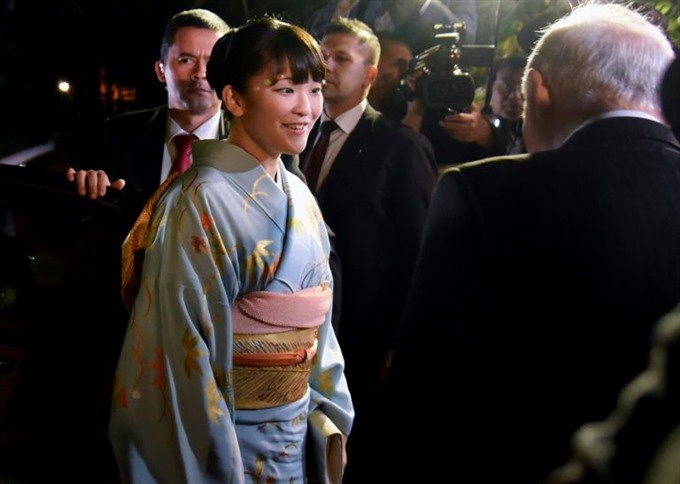 Life & Style
Life & Style

Emperor Akihito's granddaughter's upcoming engagement to her college sweetheart, a commoner, will cost the princess her royal status in a move that highlights the male-dominated nature of Japan's monarchy as it faces a potential succession crisis.
 |
| The upcoming engagement of Emperor Akihito’s granddaughter, Princess Mako, to a commoner, will cost the princess her royal status in a move that highlights the male-dominated nature of Japan’s monarchy as it faces a succession crisis. — AFP Photo |
JAPAN — Emperor Akihito’s granddaughter’s upcoming engagement to her college sweetheart, a commoner, will cost the princess her royal status in a move that highlights the male-dominated nature of Japan’s monarchy as it faces a potential succession crisis.
Public broadcaster NHK broke the story of Princess Mako’s engagement late Tuesday, sending the country into a tizzy with the news dominating television chat shows and newspaper coverage ahead of an expected official announcement in coming weeks.
Her reported fiance, Kei Komuro, a telegenic 25-year-old commoner once named Prince of the Sea in a tourism promotion contest, briefly met journalists on Wednesday, but dodged questions on the engagement, saying he would only speak about it "when the time comes".
The national rejoicing, however, has been tempered by concerns over the future of the royal family as the country prepares for its first imperial abdication in two centuries amid an acute shortage of male heirs.
Mako, 25, is the eldest daughter of Prince Akishino, Akihito’s second son, and like all female imperial family members loses her royal status upon marriage to a commoner under a controversial law.
The law does not apply to male royals, with Akihito and both his sons marrying commoners, who are now part of the monarchy.
The news reignites a debate on whether the law should be changed so women can continue in their royal roles in a bid to increase the chances of potential male heirs to a monarchy that does not allow females to ascend the Chrysanthemum Throne.
Traditionalists, including Prime Minister Shinzo Abe, strenuously oppose such changes, even though Japan has been ruled by female sovereigns in past centuries.
The government is currently preparing legislation to allow Akihito, 83, to abdicate in favour of his eldest son, Crown Prince Naruhito.
Following Naruhito’s reign, his brother Akishino and Akishino’s son, 10-year-old Hisahito, will be next in line.
But after that there are no more eligible males, meaning the centuries-old succession would be broken if Hisahito fails to have a son in the future. — AFP









